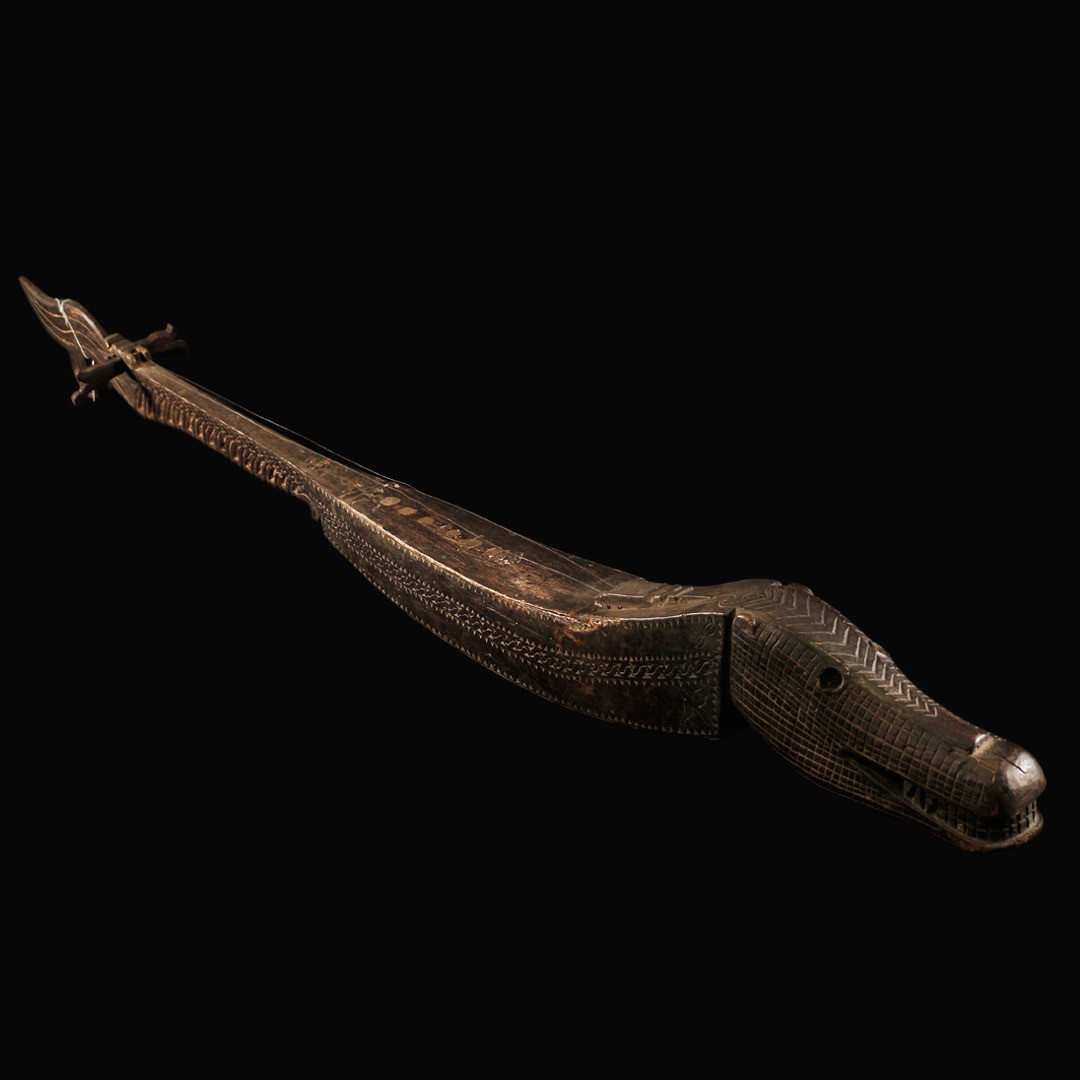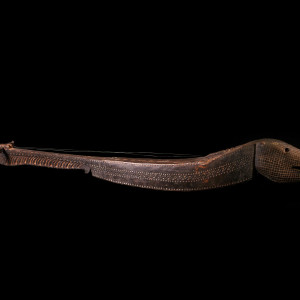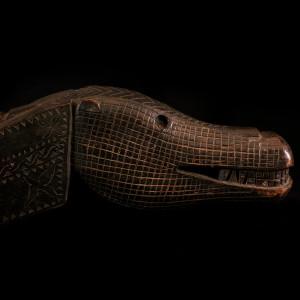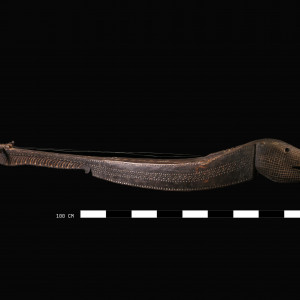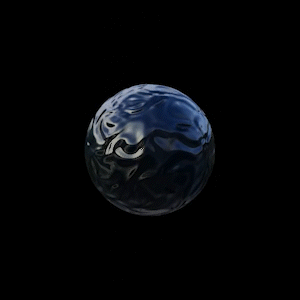Kutyapi/ Two-Stringed Lute
Sculpture
Artist
Data currently unavailable
Date
Data currently unavailable
Language Group
Maranao
Artist Collective
Data currently unavailable
Geographical Setting
Lanao del Sur
Provenance
Purchase
Making Classification
Sculpture
Making Sub Classification
Data currently unavailable
Anthropological Class
Data currently unavailable
Museological Class
Data currently unavailable
Museological Sub Class
Data currently unavailable
Condition
Good and stable
Material
Wood
Dimensions
182.00 x 10.00 x 19.00 cm
Artist Statement
Data currently unavailable
Bibliography
Casino, Eric S. " Ats & Peoples of the Southern Philippines." (In Casal, et.al The People & Art of the Philippines. Los Angeles: University of California, 1981), p. 165
Annotation
The two-stringed lute, called kutiapi in numerous languages of the Philippine archipelago, is most elaborated as a sculptural form in the Maranao version. This example clearly references a crocodile, a mythological figure of immense significance in island Southeast Asian mythology. (It should be noted that while the Maranao crocodile reference is overt, in nearly all other ethnolinguistic groups, the kudyapi abstractly references either the crocodile or boat.) The carving and incising processes used to create this kutyapi are a balance between full sculptural massing and shallow, drawing-like cuts into the wood. The balance and interaction between macro and micro work produced an object of great formal integrity. Crocodile imagery in the traditional iconography of the region obliged the makers to be deeply respectful of the powers evoked by the object.
Licensing
The exclusive Intellectual Property Rights of the information contained in this website remains with the artist/s and the Cultural Center of the Philippines and is protected by the laws of the Republic of the Philippines. No part of this website may be reproduced, published, distributed, or transmitted in any public form or by any commercial means without prior written permission of the artist/s and CCP.
For permission and licensing requests, email vamd@culturalcenter.gov.ph.
Feedback
We are committed to learning more about our collections and updating the content of this website. Does this record contain inaccurate information or language that you feel we should improve or change? Please contact us at vamd@culturalcenter.gov.ph.
